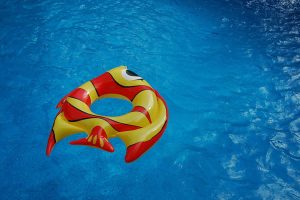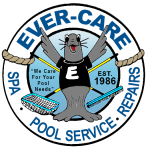 If you have a pool, you need chemicals. That’s probably not news to you. Why do pools need chemicals? Because chemicals keep your pool clean, hygienic, safe, and comfortable to swim in and protect your pool surfaces and equipment. Untreated pool water can accumulate harmful bacteria such as E. coli and Salmonella, as well as protozoan parasites like Cryptosporidium and Giardia – none of which are good. And that’s just the tip of the iceberg. So when it comes to balancing your pool chemicals, you don’t want to take chances. That’s why we always recommend professional services.
If you have a pool, you need chemicals. That’s probably not news to you. Why do pools need chemicals? Because chemicals keep your pool clean, hygienic, safe, and comfortable to swim in and protect your pool surfaces and equipment. Untreated pool water can accumulate harmful bacteria such as E. coli and Salmonella, as well as protozoan parasites like Cryptosporidium and Giardia – none of which are good. And that’s just the tip of the iceberg. So when it comes to balancing your pool chemicals, you don’t want to take chances. That’s why we always recommend professional services.
But even if you’ve hired a professional, you should still be relatively well educated on what the professionals are doing, and why. Here are some of the basics of pool chemical maintenance:
Sanitizers
The first chemicals you need for your pool are going to be sanitizers. As the name suggests, these chemicals keep your pool clean. Your sanitizing agent should always be present in your pool at consistent levels.
Common sanitizers include:
- TriChlor
- DiChlor
- Calcium hypochlorite
- Bromine
- Sodium Hypochlorite Bleach
Chlorine/bromine should be tested for multiple times weekly.
Oxidizers
Oxidizers act as backup sanitizing agents to help kill algae and bacteria. These are also known as pool shocks. They typically come in a powdered form and are pretty easy to use — just open the bag and pour it into the pool. How much you need will depend on the capacity of your pool.
Common oxidizers include:
- Potassium Monopersulfate
You should shock your pool when the chlorine level drops to 0ppm, when the water becomes cloudy or if there is an algae bloom. If the chlorine drops below 3ppm make sure to bring your chlorine level up to 5ppm when shocking your pool. Adding an oxidizer alone is not enough.
Water Balancers
Water balancers balance the pH and alkalinity of the water. pH is a measure of how acidic or basic water is. Alkalinity is the capacity of water to resist changes in pH. Ideally pH should be kept between 7.4 to 7.8, or slightly more base than neutral. Alkalinity should be kept between 80-120ppm. However, the exact pH and alkalinity you should aim for may vary depending on which other chemicals you are using, how often they are used and other water factors such as:
Water hardness levels (Calcium hardness)
TDS levels (Total Dissolved Solids)
Cyanuric acid levels
Water temperature
Common balancers include:
- Powder soda ash (pH increaser)
- Powder sodium bicarbonate (pH increaser)
- Powder sodium bisulfate/dry acid (pH reducer)
- Granular calcium chloride (calcium hardness increaser)
- Granular sodium thiosulfate (chlorine neutralizer)
Test your pool several times per week to track both sanitizer and pH levels, and adjust accordingly. Total alkalinity should be tested about once every three weeks. Calcium hardness, TDS and Cyanuric Acid Levels should be tested about once per month.
Other Chemicals
In addition to the categories we’ve discussed so far, there are other chemicals you should know about. These need to be used less regularly, but still can be very useful for keeping your pool clean and looking pristine. These include:
- Algaecides
- Water clarifiers
- Enzymes
- Metal removers
- Phosphate removers
- Stain removers
- Tile and vinyl cleaners
How often you will need to use these other pool chemicals depends on your individual needs.
Conclusion
At bare minimum, as a pool owner you need chlorine tablets, pool shock, pH increaser, pH reducer, and test strips or a test kit (test kits tend to be much more accurate). Generally speaking, the best order for adding pool chemicals is as follows:
- pH
- Calcium hardness
- Sanitizers/oxidizers
- Cyanuric acid
This helps the chemicals work at peak performance for maintaining the quality of your pool. You can also use chemical combo packs or kits formulated for your specific needs and pool size, which can be very convenient.
Never mix pool chemicals! It may be tempting to do, since they’re all going into the same water, but it’s important to remember that these chemicals get heavily diluted once in the pool. If mixed outside of the pool, they can produce toxic fumes or even explode.
If you’re feeling overwhelmed by all the different schedules and checks, take a deep breath. Remember, the easiest way to check and balance your pool chemicals is by hiring a professional pool and chemical maintenance service. We’ll come by regularly to make sure that your pool water is in peak condition! That way, you can focus on enjoying your pool, rather than all the work it takes to maintain it.


